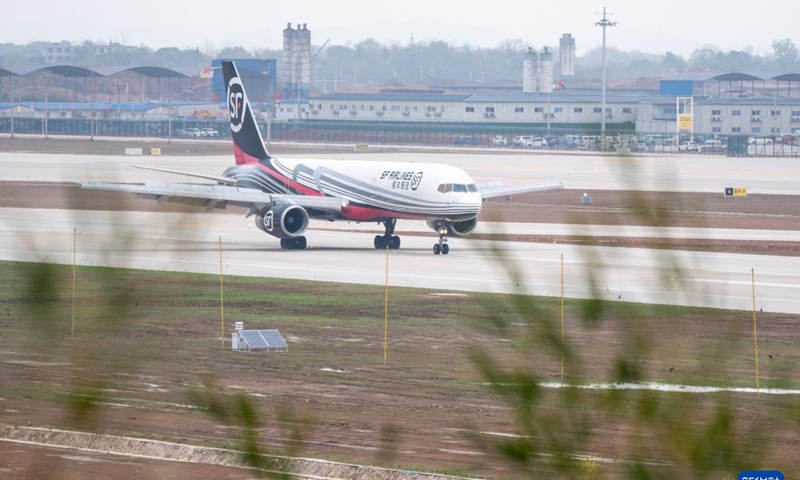
Tourists take photos of cherry blossoms at Su Causeway, West Lake scenic area in Hangzhou, east China's Zhejiang Province, March 20, 2022. Cherry blossoms have entered the blossom season across China. (Photo: China News Service/Wang Gang)
Nearly one month after China's top economic planner and other government departments released a raft of measures to shore up support for micro-sized businesses, local governments in various places, including South China's Guangdong, North China's Tianjin Municipality and East China's Zhejiang are rolling out detailed support policies to help local services companies and entrepreneurs cope with the impact of recent COVID-19 outbreaks.
Those policies, ranging from reducing taxes and postponing fee payments to encouraging credit support and giving subsidies, are deemed by experts as the strongest set of support policies for services industries since the initial outbreak of the COVID-19.
Although the force of those policies differs from region to region, their strength has increased in general compared with past measures. For example, the city government of Hangzhou, Zhejiang has announced plans to cut six taxes and two fees by as much as 50 percent for local services firms, and it has extended eligibility from small-scale taxpayers to individually owned businesses.
In terms of precision, several cities have designed support policies for specific services industries. Of the 40 support policies rolled out by Hangzhou to help services industries on Sunday, 15 are inclusive policies, and the rest are specifically for the catering, retail, tourism and transportation industries.
Guangdong also came up with the same regulation. The provincial government of Guangdong has also launched 47 policies to support services firms, which include ones for specific fields like tourism and dining. For example, cities in Guangdong are asked to "direct" online platforms to further decrease service fees for restaurants.
For transportation companies, the government said that it would actively roll out oil subsidy policies. Guangdong will also suspend prepaid value-added tax (VAT) for aviation transportation companies for one year.

An air freighter taxis at the Ezhou Huahu Airport in Ezhou, central China's Hubei Province, March 19, 2022. The Ezhou Huahu Airport completed its flight-test of air freighter on Saturday. The airport is the country's first cargo airport, with the functional orientation of the air cargo hub and feeder airport for passenger transport. Photo:Xinhua
The policy supports came as businesses have been affected by recent COVID-19 resurgences in many places, where residents were forced to cancel outdoor activities.
"After two years of fighting the coronavirus, the government now has a deeper understanding of the epidemic's impact on the economy," Lin Jiang, a professor of economics at Sun Yat-sen University, told the Global Times on Sunday, noting that difficulties in the services industry would directly pressure the country's labor market, as about half of China's population is working in this sector.
He noted that the new round of support policies is designed as a whole package of bail-out measures. Multiple government departments are involved, and they are interacting to achieve the best effects. "This time, the policies are rolled out in a comprehensive way," Lin said.
Local entrepreneurs also hailed the policies as helpful, as they all have the same objective of reducing costs to help firms survive the current difficult period.
He Baolin, who owns a noodle restaurant in Shenzhen, told the Global Times that he is particularly excited about the policy urging e-commerce platforms to cut commissions, as about 80 percent of the shop's orders come from online.
According to He, the current commission is about 23 percent on online food takeout platforms like Meituan. "I am looking forward to the new policy, which will start from April," he said.
Meituan will cut commissions by half and set a maximum fee of 1 yuan per order for certain businesses in COVID-19-affected areas to alleviate the burdens of private companies.





